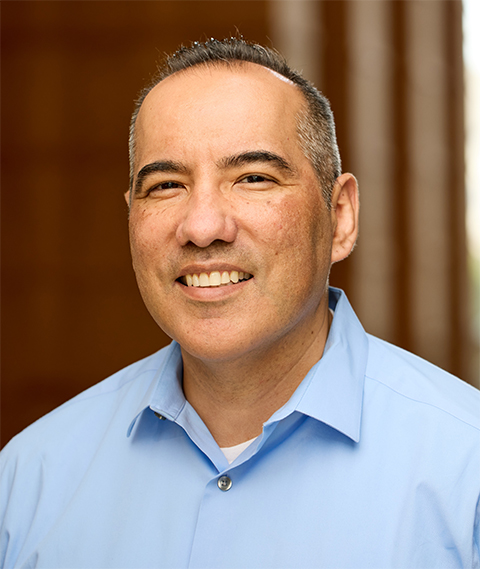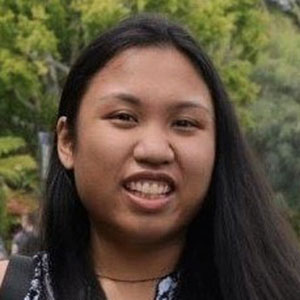
Beyond the bench: On a mission to build an inclusive scientific community
Benjamin Garcia was a late bloomer in science. His parents were from Mexico, and he was born and raised in Southern California as a self-proclaimed “slightly above average student.” It wasn’t until midway through college that he became interested in chemistry.
As an undergraduate, Garcia started working in a laboratory, which opened his eyes to scientific research. In 2005, he earned a Ph.D. in chemistry from the University of Virginia.

Garcia is now a professor and head of the biochemistry and molecular biophysics department at Washington University School of Medicine in St. Louis. His research uses quantitative mass spectrometry–based proteomics to characterize modified proteins and proteomes, especially those involved in epigenetic mechanisms.
The American Society for Biochemistry and Molecular Biology has selected Garcia to receive the 2024 ASBMB Ruth Kirschstein Diversity in Science Award in recognition of his commitment to breaking down barriers against scientists and students in historically marginalized or excluded groups.
Garcia’s resolve to increase diversity stems from a past lack of representation. As a student, he never had a science course taught by a Hispanic professor and didn’t see many underrepresented scientists in research.
“You start thinking, ‘Is this where I should be? Am I welcome in science? Do people want me here?’” he said.
Great mentors and organizations helped him overcome his imposter syndrome. One memorable moment was attending a poster session hosted by the Society for Advancement of Chicanos/Hispanics and Native Americans in Science, or SACNAS, and seeing so many Hispanic scientists at once.
“That was incredibly motivating to know there are scientists out there that looked like me,” he said.
Once Garcia became established, he felt it was time to give back and help others.
“It’s all about helping the next generation move forward,” he said.
At Washington University, Garcia started a summer undergraduate research program that favors students who have no research experience and has hosted a number of underrepresented minority students. He also convinced faculty to participate in workshops to help better understand and support trainees of diverse backgrounds.
Recently, Garcia also helped start a mass spectrometry special interest group for Hispanic and Latinx scientists. He has arranged for students and faculty to attend SACNAS conferences, given motivating talks at institutions and recommended policy changes to address systemic racism. Since 2022, Garcia has been a mentor for ASBMB’s Maximizing Opportunities for Scientific and Academic Independent Careers, or MOSAIC, program, for postdoctoral researchers from diverse backgrounds.
In a letter nominating Garcia for the Kirschstein award, his first Ph.D. student, Mariana Torrente, now a professor, wrote, “I strive to give my students the same type of approachable, comprehensive mentoring that he exemplifies. His efforts have made a world of difference to me and the many others that came after me.”
A journey of finding his place
At the 2025 ASBMB Annual Meeting, April 12–15 in Chicago, Benjamin Garcia will recount his journey from knowing nothing about science to heading a department at a top-ranked U.S. school of medicine.
He will describe how chance encounters and helpful mentors and advocates throughout his life helped get him to where he is today.
“No one could have predicted I would make it this far in science or academia,” he said. “I shouldn’t be here, but I am because of generous encouraging scientists who saw a glimmer of something special in me when I didn’t see that for myself.”
ASBMB 2025 award winners
Read profiles of all the society’s 2025 honorees who will receive their awards and give talks at the ASBMB Annual Meeting, April 12–15 in Chicago.
From receptor research to cancer drug development: The impact of RTKs
Joseph Schlessinger receives the ASBMB Herbert Tabor Research Award.
Computational and biophysical approaches to disordered proteins
Rohit Pappu receives the DeLano Award for Computational Biosciences.
Leading the charge for gender equity
Nicole Woitowich receives the ASBMB Emerging Leadership Award.
Helping underrepresented scientists feel seen
Benjamin Garcia receives the ASBMB Ruth Kirschstein Diversity in Science Award.
Transforming learning through innovation and collaboration
Neena Grover receives the William C. Rose Award for Exemplary Contributions to Education.
Curiosity turned a dietitian into a lipid scientist
Judy Storch receives the Avanti Award in Lipids.
Elucidating how chemotherapy induces neurotoxicity
Andre Nussenzweig receives the Bert and Natalie Vallee Award.
What seems dead may not be dead
Vincent Tagliabracci receives the Earl and Thressa Stadtman Distinguished Scientist Award.
'You can't afford to be 15 years behind the parasite'
David Fidock receives the Alice and C.C. Wang Award in Molecular Parasitology.
Guiding grocery carts to shape healthy habits
Robert Helsley receives the Walter A. Shaw Young Investigator in Lipid Research Award.
Enjoy reading ASBMB Today?
Become a member to receive the print edition four times a year and the digital edition monthly.
Learn moreGet the latest from ASBMB Today
Enter your email address, and we’ll send you a weekly email with recent articles, interviews and more.
Latest in People
People highlights or most popular articles

Embrace your neurodivergence and flourish in college
This guide offers practical advice on setting yourself up for success — learn how to leverage campus resources, work with professors and embrace your strengths.

Survival tools for a neurodivergent brain in academia
Working in academia is hard, and being neurodivergent makes it harder. Here are a few tools that may help, from a Ph.D. student with ADHD.

Quieting the static: Building inclusive STEM classrooms
Christin Monroe, an assistant professor of chemistry at Landmark College, offers practical tips to help educators make their classrooms more accessible to neurodivergent scientists.

Hidden strengths of an autistic scientist
Navigating the world of scientific research as an autistic scientist comes with unique challenges —microaggressions, communication hurdles and the constant pressure to conform to social norms, postbaccalaureate student Taylor Stolberg writes.

Richard Silverman to speak at ASBMB 2025
Richard Silverman and Melissa Moore are the featured speakers at the ASBMB annual meeting to be held April 12-15 in Chicago.

Women’s History Month: Educating and inspiring generations
Through early classroom experiences, undergraduate education and advanced research training, women leaders are shaping a more inclusive and supportive scientific community.

